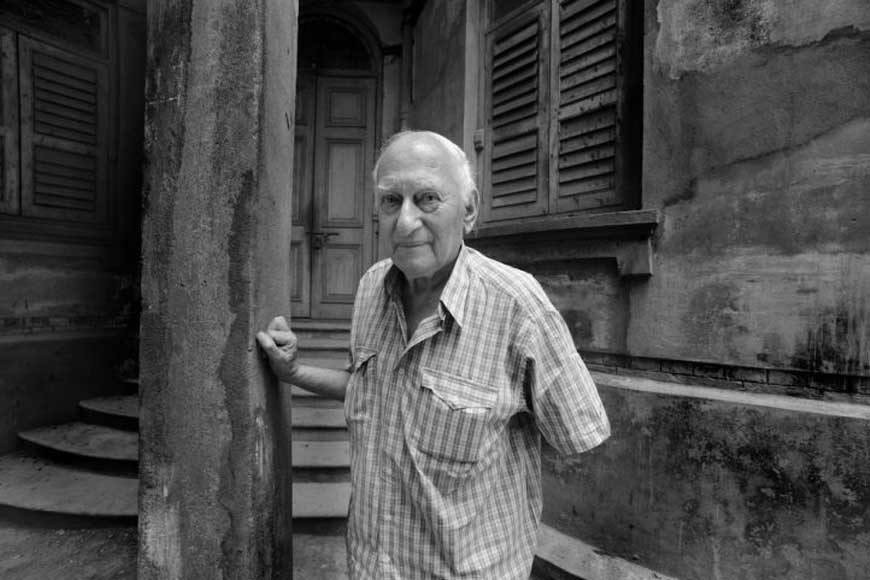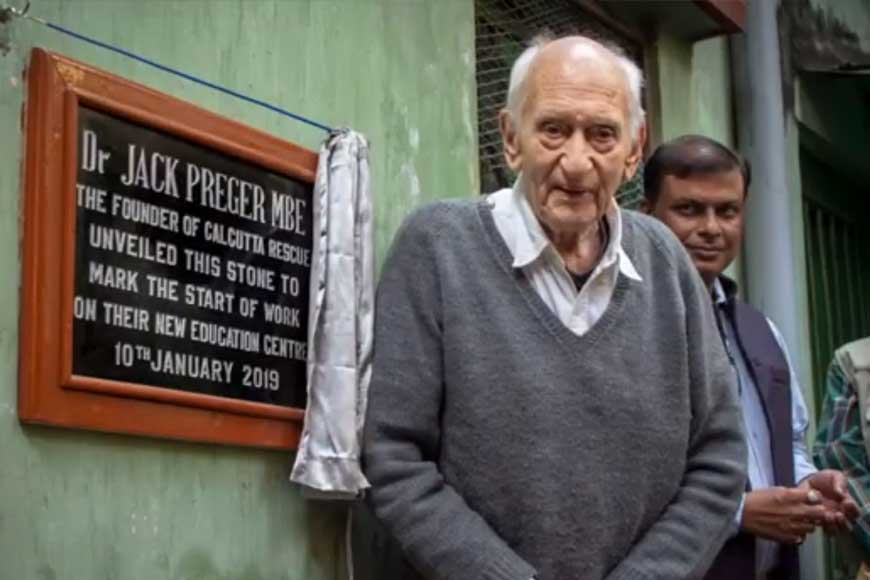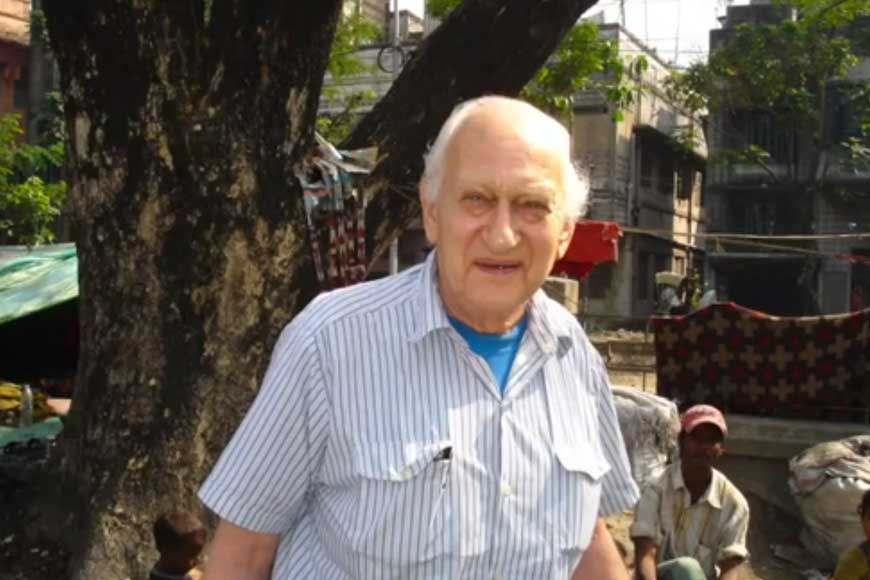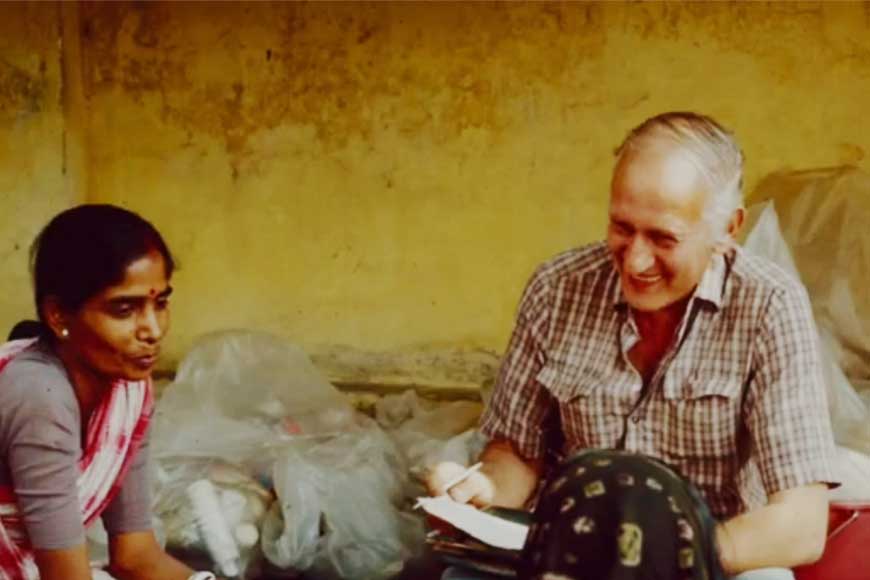Jack Preger, the street doctor who took care of Kolkata’s poorest for 40 years – GetBengal story

Jack Preger ,the man who silently dedicated 40 years of his life to providing medical care and attention to the poorest on the streets of Kolkata, He took an ‘early retirement’ at the age of 88, but his relief agency, Calcutta Rescue, continues to uphold his legacy with their work.
Born in Manchester, England, Preger pursued a course in economics and political science at the prestigious Oxford University, after which he ran a farm for 8 years. One day, while driving his tractor through his fields, he was overcome with the urge to study medicine and help the underprivileged people living in third-world countries. In a few weeks, 35-year-old Preger had sold his farm to enrol in the Royal College of Surgeons. But coming to India had never been on his plans. After completing his internship, Preger intended to serve the poor in South or Central America, for which he had also learned Spanish. But when doctors and nurses were asked to volunteer to help the people of newly independent Bangladesh, Preger answered the call without hesitation.

“My first choice was Latin America. When I was working in Ireland, there was an appeal from Concern, an Irish NGO, for nurses and doctors to come here. So I answered the appeal.” The doctor writes
He worked in Dhaka, where the conditions were dire. Thousands of refugees filled the camps, which were in a dangerously squalid state. It was here that Preger learned Urdu and Bangla to better serve the locals. But soon after, when Preger uncovered and exposed a child trafficking racket despite warnings by the Bangladesh government to leave it alone, he was forced to leave the country and deported to Bangkok.
This didn’t discourage Preger. That year, he decided to move his medical practice to Kolkata and worked at Mother Teresa’s Missionaries of Charity for six months. But he wanted to do more for the poor of this city and left the Missionaries of Charity. In his own words,
“If one wants to give love, understanding, and care, one uses sterile needles. This is probably the richest order in the world. Many of the dying there do not have to be dying in a strictly medical sense.”
Also read : Desmond Doig, the man captivated by Calcutta
That’s when he decided to start operating independently. Initially setting up a clinic under the flyover that connects Howrah Bridge, he soon moved to Middleton Row, located off Park Street, when moving medical supplies to and from the bridge proved to be impractical. Temporary structures of tarpaulin and wooden poles were put up and taken down every day, six days a week. Despite being systemically harassed by authorities and denied a licence to practise (he was even thrown in jail at one point), Preger continued helping the poor and marginalised communities of Kolkata. Most of his patients were slum squatters, beggars, and members of the labour class who didn’t have the money for proper health care. The fact that Preger accomplished so much in spite of the many obstacles is astounding; it begs the question of how the heroic endeavour managed to survive at all, much less advance so far.

“He never gave up on a cause that he believed in... He always put the needs of the poor before his own comfort and inspired so many people by his example. He also has a great sense of humour, which he never lost, however hard life was for him,” Jennifer Baskerville, who works at Calcutta Rescue, said about Preger.
Inspired by his passion to help the underprivileged, more and more people joined his cause, extending help by volunteering with him or providing funds. This encouraged Preger to establish Calcutta Rescue in 1979. Preger was a deeply empathetic and compassionate man. He was extremely fond of the people here and their humour, often joking around with his patients while he took care of them. He wasn't just a doctor to them. He was also a friendly face. Someone who welcomed them with open arms, no matter where they came from. Called "The Pavement Doctor of Calcutta," he is recognised by most as the creator of street medicine.
An American physician named Jim Withers, who was visiting India in 1993, was motivated to introduce the idea of providing healthcare on the streets in his own hometown, Pittsburgh, USA. In 2009, Withers went on to create the Street Medicine Institute. As a result, street medicine initiatives are currently running in more than 85 cities across 15 nations.
Despite having left Bangladesh decades ago, Preger continued his search for the missing children displaced because of the child smuggling racket he had exposed, constantly raising awareness about it. His NGO, Calcutta Rescue, has changed the lives of more than 5 lakh people and continues to be a beloved organisation for the city folk. Not only does Calcutta Rescue attend to the medical needs of the poor, but it also supports the education of thousands of children, provides clean drinking water to slums, and provides vocational training to the poor. Preger persevered, and it is through his devotion that CR continues to revolutionise health care among Kolkata’s most downtrodden.

Jack Preger was named a Member of the Order of the British Empire for his perseverance and selfless acts of service in 1993.
He was also named “Philanthropist of the Year” by the Asian Awards in 2017, becoming the first non-Asian to be honoured as such at the awards.
After 40 years, Preger finally bid adieu to the city he had given so much of his life to with a suitcase that contained nothing but a lamp and a picture of Scotland. Both gifts from his well-wishers, because even at the end, he would not leave without distributing his remaining possessions to the people living on the streets of Kolkata.










